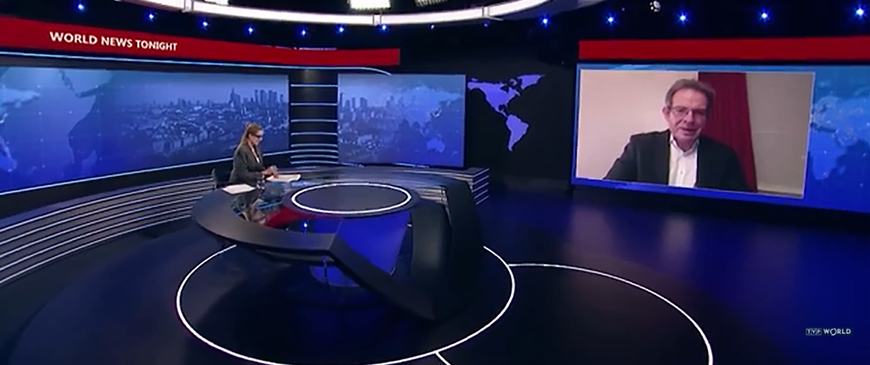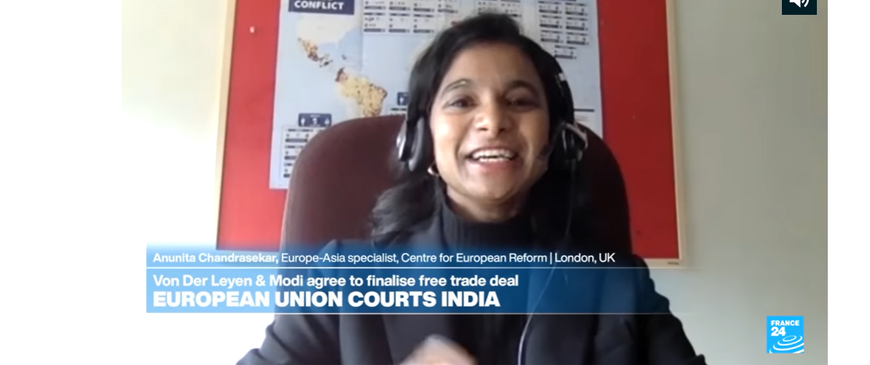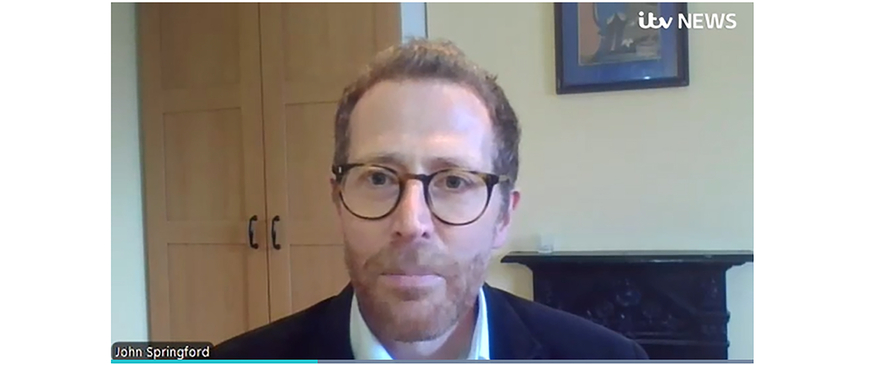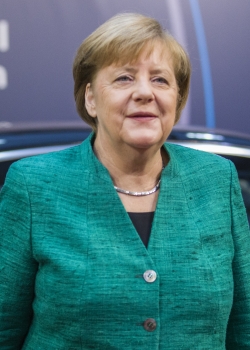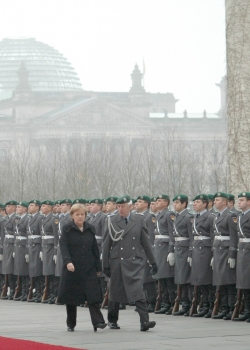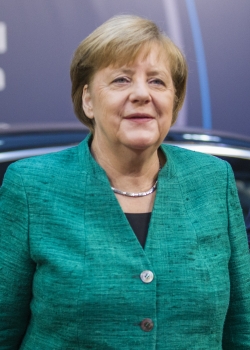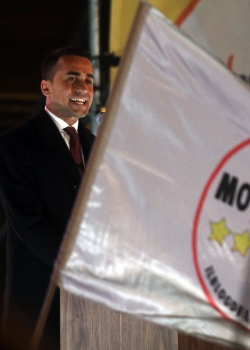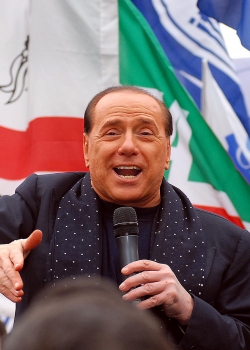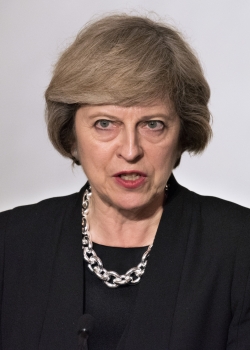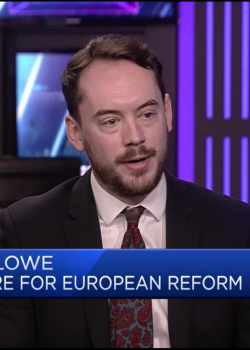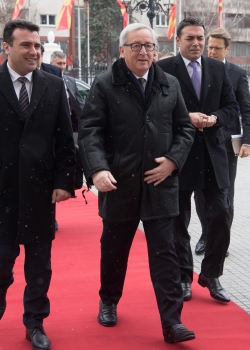Press
Germany should finally take the lead in Europe
06 March 2018
Handelsblatt
Now she has won a fourth term, Chancellor Merkel should put little-Germany thinking behind her and be the leader that Europe needs.
Why Germany must spend more on defence
06 March 2018
CNN
Now that Germany has a new government, investing in defense and the transatlantic relationship has to be a priority for Angela Merkel.
As one EU headache subsides in Germany, another starts in Italy
06 March 2018
The Guardian
Germany and France may choose to push ahead without Italy’s support, or they may decide the new environment makes that untenable. “An unstable, Eurosceptic Italy could well put the brakes on Franco-German plans,” said Charles Grant, co-founder of think-tank the Centre for European Reform.
The end of little Germany?
05 March 2018
Project Syndicate
Now that a new government has finally been formed, Germany must start thinking of itself as the major economic player it is, and behave accordingly.
The Italian election has shattered any illusion that Europe's populists are in retreat
05 March 2018
The Telegraph
In the wake of Emmanuel Macron’s victory in France, many argued that anti-establishment parties in Europe were on a downward trajectory. Italy's election has shattered that illusion.
How to think about Britain's post Brexit foreign policy
05 March 2018
E!Sharp
What impact will Brexit have on the UK’s foreign and security policy? While many Brexiteers argue it will lead to a global Britain, for many others it is clear it will result in a substantial loss of international influence.
Who is Sergei Skripal? Russian convicted of spying found unconscious on mall bench
05 March 2018
Newsweek
“Very worrying news that Sergei Skripal, Russian imprisoned for spying for UK & swapped in 2010 as part of 'Anna Chapman' exchange, seems to have been poisoned in Salisbury. Another example of Russian intel treating UK as a free fire zone?” Ian Bond director of foreign policy at the Centre for European Reform tweeted on Monday.
Italy's populist parties locked in battle to form new government after inconclusive vote in landmark election
05 March 2018
The Telegraph
"The likeliest outcome remains a president's government of national unity to govern for six months to a year while the politicians gear up for a new election," said Luigi Scazzieri, the Italian specialist at the Centre for European Reform think-tank.
Whatever happens in this election, Italy has fallen out of love with the EU
04 March 2018
The Telegraph
Italy’s election comes at a crucial time for the EU. French President Emmanuel Macron has set out ambitious plans for reforming the eurozone and integrating more closely in security, defence and migration.
Theresa May tells Trump of 'deep concern' about US trade tariff plans
04 March 2018
The Irish Times
Sam Lowe, a trade expert at the Centre for European Reform think tank, agreed, arguing that convergence in those areas made “doing a deal with the US incredibly difficult, as the majority of their aggressive objectives involve removing regulatory barriers to trade, especially when it comes to food standards”.He added that it would make sense for the UK to keep its focus on European links. “I’d question the logic of running into a trade deal with a president who sees trade less as a means of achieving mutual prosperity and more an instrument of war.”
May tells Trump of 'deep concern' over US trade tariff plans
04 March 2018
The Guardian
Sam Lowe, a trade expert at the Centre for European Reform think-tank, agreed, arguing that convergence in those areas makes “doing a deal with the US incredibly difficult as the majority of their aggressive objectives involve removing regulatory barriers to trade, especially when it comes to food standards”.He added that it would make sense for the UK to keep its focus on European links. “I’d question the logic of running into a trade deal with a president who sees trade less as a means of achieving mutual prosperity and more an instrument of war.”
Brussels takes hard line on free trade deals
04 March 2018
The Telegraph
“In the end, most FTA partners will continue to grant preferential treatment to UK exports throughout the transition, but we might need to buy some of them off,” said Sam Lowe, international trade expert with the Centre for European Reform think-tank.
“This is their period of maximum leverage vis-à-vis the UK, so it would be negligent for them not to at least try and get guaranteed concessions, to come into effect once the arrangement has been replaced post-transition, from the UK.”
“This is their period of maximum leverage vis-à-vis the UK, so it would be negligent for them not to at least try and get guaranteed concessions, to come into effect once the arrangement has been replaced post-transition, from the UK.”
CER reaction to Prime Minister Theresa May's 'Road to Brexit' speech
02 March 2018
"Theresa May’s speech was serious. It was good that she recognised that the UK faces trade-offs and will lose some access to the single market."
CNBC: Brexit: Analysts preview the next stage of talks between the EU and UK
02 March 2018
Sam Lowe of the Centre for European Reform, and Bill Cash of the European Scrutiny Committee, discuss the latest Brexit developments.
BBC Newsnight: EU-27 deals
02 March 2018
Charles Grant, director of the Centre for European Reform told Mark Urban that although quite a few EU countries want a broader deal than the Commission, France and Germany, they lack a leader (from 17.18 mins).
Theresa May's Brexit speech more pragmatism than policy
02 March 2018
BBC News
Sam Lowe, a trade policy analyst at the Centre for European Reform, says that mutual recognition to the extent Mrs May intends "only exists in two places - the EU and a Australia-New Zealand Trans-Tasman agreement". He points that both these arrangements come with "shared political institutions, shared agencies, and ended up moving towards harmonisation".
British PM admits 'hard facts' in Brexit trade deal
02 March 2018
Agence France Presse
John Springford, deputy director of the Centre for European Reform, said May had "advanced a plan that the EU will not accept". "We are heading for something much more economically damaging - unless she changes her red lines."
Judy Asks: Is Central Europe damaging EU enlargement?
28 February 2018
Carnegie Europe
The EU’s big bang enlargement has always generated mixed feelings.
Brexit briefing: The EU backs Ireland . . . for now
28 February 2018
The Financial Times
“If [the] Irish appear unwilling to compromise, some of the 27 will be less supportive of them than they currently are in public,” tweeted Charles Grant, head of the Centre for European Reform, last night. “The 27 will push the UK as far as they can on Irish border till March, then seek a compromise that may involve some but minimal infrastructure near border.”
Why Italy's election matters
28 February 2018
Atlantic Council
But, according to Luigi Scazzieri, a research fellow at the Centre for European Reform in London, neither party’s participation in the next government is likely to result in major changes to Italian foreign policy other than “noises about easing sanctions against Russia,” possible business deals with Moscow, and a “more transactional” approach to the country’s NATO membership.

